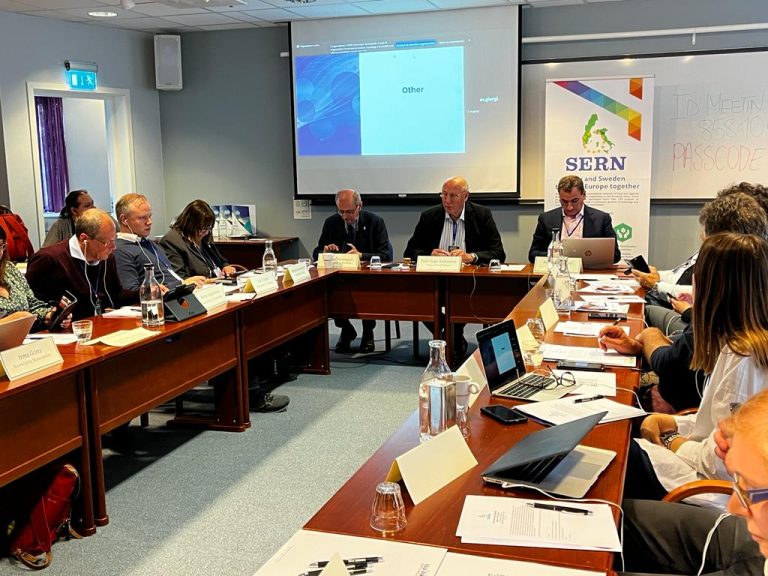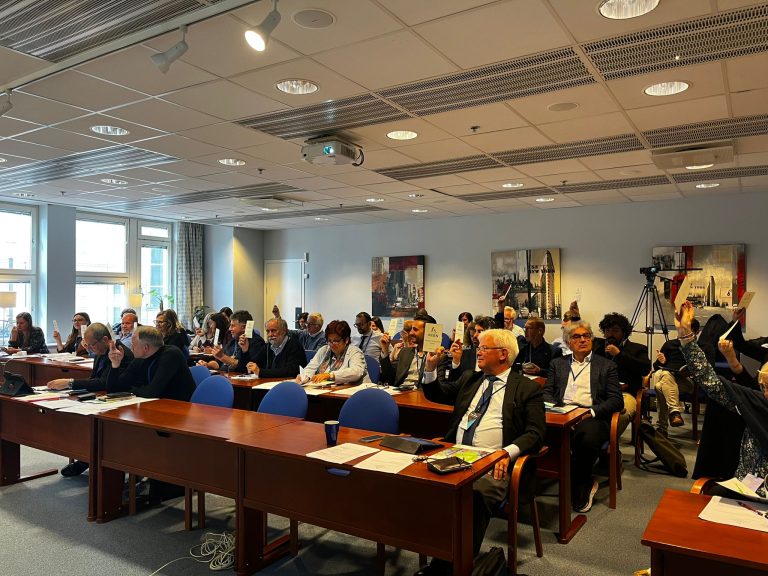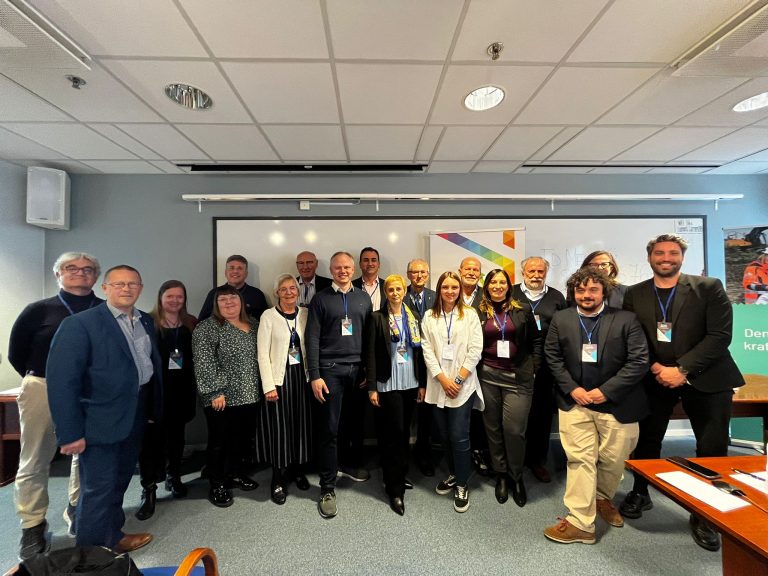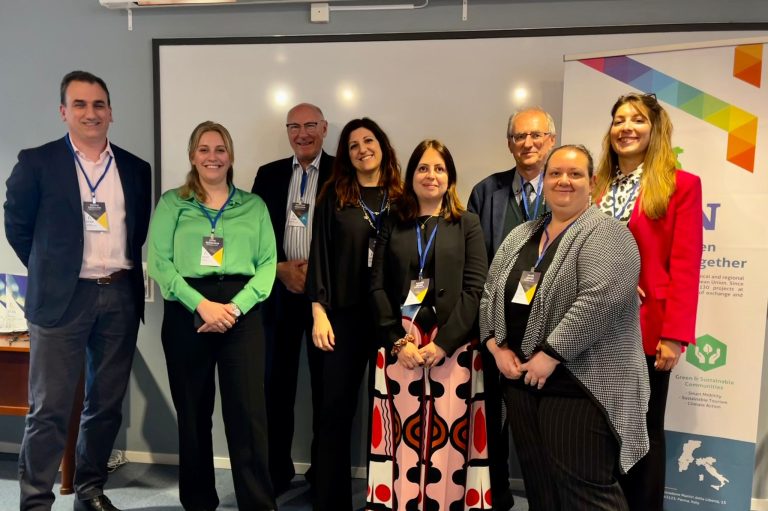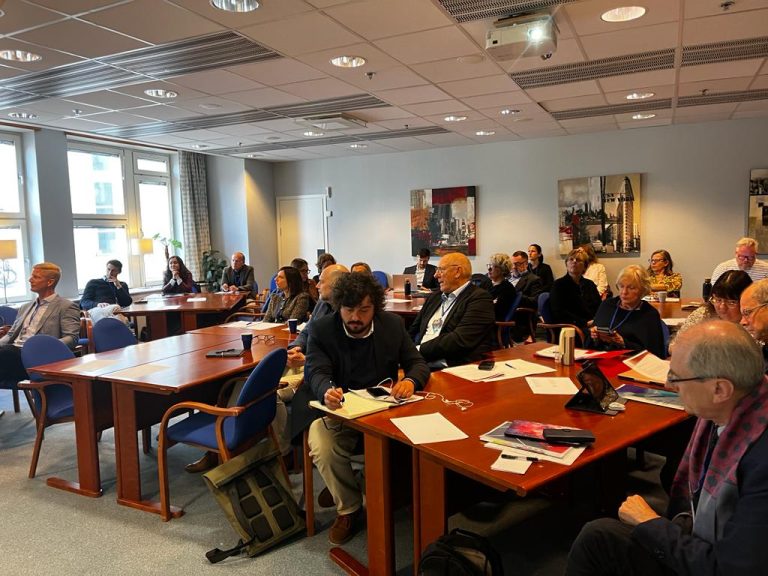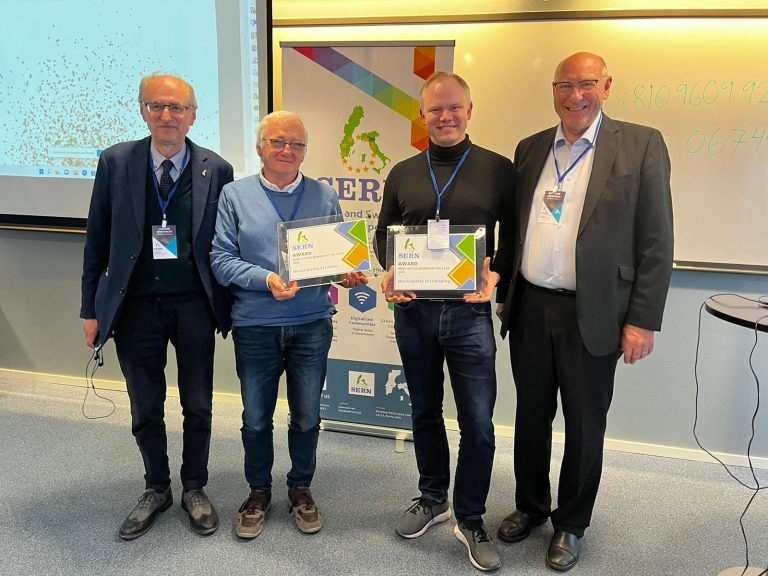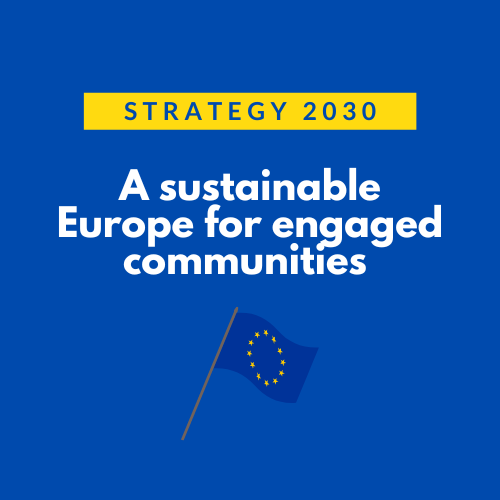
Funded by

Europe for Citizens
Contacts

- laura.avanzi@sern.eu
- +39 348 8786110
Strategy 2030: a sustainable Europe for engaged communities
About the project
The EEC2030 project involved 3 European countries (IT; SE; FI; ) with the representation of public authorities and twinning committees with the direct participation of around 100 people and around 500.000 indirect participants. Due to the pandemic, the project has been postponed both in 2020 and 2021 and took place in Gothenburg from 10 to 13 May 2022.
Also the main objectives of this project required some updates to answer to the new perspectives and crisis that the pandemic and also the war in Ukraine proposed. The objectives can be the following ones:
- To analyse the strategies and activities to create a sustainable Europe
- To increase knowledge of citizens about EU policies and their interrelation with the 2030 strategy in a post pandemic perspective
- To exchange best practices among EU partners
- Networking among partners and possible stakeholders
The activities were implemented on a 4 days basis with different activities, such as seminars, workgroups, study visits, meetings with local stakeholders and networking events among European partners.
The methods employed:
- Strategic and Thematic Deepening: Presentations and lectures by experts and experienced participants to establish a context and deepen the content of the new European guidelines with a specific focus on smart and sustainable growth .
- Identification of common questions and interests: use of open space technology (or similar methods) to
involve participants in a process that will pay attention to specific aspects of themes that the subgroups come to work with. - Orientation and establishment of guidelines for subgroups to share common problems and find common solutions inspired by the Project Cycle Management method.
The project is aimed at three target groups: civil servants, political representatives and decision makers from partner organizations as well as citizens representing other local communities associations.
The event saw the participation of around 100 people from Italy, Sweden and Finland. Other 15 participants followed and intervened in the seminars and workshops in on-line modality.
Among the 91 “in-situ” participants, 42 were “invited participants” coming in presence from Finland and Italy. In particular: 2 participants from Liiveri (Finland); 12 participants from Unione Pedemontana Parmense (Italy); 28 participants from SERN (Italy) and 49 participants from Sweden.
Day 1 - 10 May 2022
The day was dedicated to the arrival of participants and to the informal meetings among partners. In particular, project coordinators from Liiveri, SERN, Unione Pedemontana and Vanersborg met to revise the agenda of the meetings and seminars.
Day 2 - 11 May 2022
Due to the pandemic crisis and its consequences on citizens, the topics of the project as written in the original application changed and followed the main topics of discussion at EU level in the post pandemic period and in a war period as nowadays.
On the 11th the main topic was sustainability explained under three perspectives: mobility, tourism and energy.
The first seminar was dedicated to sustainable mobility in peripheric areas and how to identify new solution to facilitate mobility to/from many small villages in rural and mountain areas. They are far from larger urban big centres and it is difficult to manage a public transportation service, as they are low demand areas and a regular public transport service can be difficult to sustain in the long run from an economical point of view.
The second seminar was held on sustainable tourism and how to promote joint initiatives between public and private actors in order to shift towards a more sustainable society.
The third seminar was dedicated the use of sustainable energy and how local and regional authorities are increasingly becoming important players as drivers of energy policy processes. On the one hand, such processes are aimed at fostering sustainable solutions and energy saving practices among their citizens. On the other hand, local authorities have to ensure their public services and therefore need to adopt policies themselves aimed at ensuring a more effective and sustainable local public spending related to energy consumption.
All the seminars follow the structure of active involvement of participants with the identification of common questions and interests and then followed by orientation and establishment of guidelines for subgroups to share common problems and find common solutions inspired by the presentations and discussions held.
Day 3 - 12 May 2022
The focus of the day has been the impact of the pandemic on the education and youth policies.
The first seminar of the day was dedicated on how to cope with emergency in preschool and school system. With the arrival of the pandemic in 2020, each country reacted in different way, but the common elements that have been emerging in both countries indicate was that we were not ready, and the school system didn’t have a model to cope with emergencies and uncertainties. Discuss among participants was on what have we learnt in the last two years that could be turned into a model to be applied locally for future unexpected emergencies.
The second seminar was focused on Youth policy and how Covid-19 pandemic affected negatively young people and their participation within the society. Reinforcing democratic awareness and developing participation are two major aims for European societies to help young people to become active and engaged citizens and realise a sustainable democracy. The seminar, indeed, focuses on possible actions to be taken in a post- pandemic framework to reach a complete and inclusive participation of young people in the society and to promote opportunities to let them become actors of change.
A study visit was also organised to Passalen, a non- profit association working to develop new solutions to create inclusion for children and young people with disabilities.
Day 4 - 13 May 2022
Participants had the opportunity to see the presentation of results and on going activities of European project cofunded by Europe for Citizens programme, such as PartHer project and Sayouth project.
